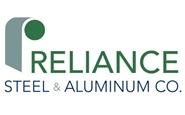Market Segment

February 18, 2016
Reliance Steel & Aluminum Improves Margins in Q4
Written by Sandy Williams
Reliance Steel & Aluminum reported net income of $68.8 million for fourth quarter of 2014, down 25.7 percent from fourth quarter 2014 but up 33.5 percent from third quarter.
Total sales for Q4 were $2.03 billion down 21.4 percent year over year and down 11.4 percent from third quarter 2015. Total tons sold were down 7.1 percent from third quarter to 1.38 million tons and down 6.1 percent year over year. Gross profit margin increased to 26.7 percent.
Fourth quarter carbon steel sales declined 7.2 percent sequentially to $1.1 billion on shipments of 1,127,900 tons. Year over year steel sales were down 22.8 percent and volume down 18.0 percent.
Reliance attributed fourth quarter decline to normal seasonal trends and reduced shipping days over the holidays.
Full year sales were down 10.5 percent to $9.35 billion. Shipments slid 2.8 percent to 5.9 million tons. Net income for the full year 2015 totaled 311.5 million, a decline of 16.2 percent from 2014.
President and Chief Executive Officer Gregg Mollins said, “We were very pleased with our strong operational execution throughout 2015 despite a very challenging economic environment that continued to pressure metals pricing.”
Mollins noted a record cash flow generation of $1.0 billion and successive quarters of improved gross profit margin in 2015.
Inventory control was a major focus for Reliance, reducing inventory by $193.3 million during the fourth quarter and $433.1 million for the year. “If you have too much inventory, it’s easy to take a bad order,” said Mollins during the earnings conference call. “We prefer higher profit over volume.”
Reliance reduced its workforce by 1,111 employees in 2015 across several operations including the energy business. Toll processing grew during the year and contributed to an increase of 255 employees bringing the net headcount reduction to 5.8 percent or 856.
The automotive market and its increased interest in aluminum have created new opportunities for Reliance in toll processing. In 2015, Reliance opened a new facility that doubled processing volume from 2014.
Two of the company’s toll processing facilities are being expanded and a new facility is under construction in Mexico that is expected to begin operations in mid-2016. A new facility is also planned for Kentucky.
“At Reliance, we are particularly fond of this business,” said executive VP of Operations Jim Hoffman. “As we take on no inventory risk, our toll processing operations are not impacted by metal pricing. We simply process the metal for a fee without taking ownership of it. As we’ve mentioned in the past, although toll processing represents a small portion of our total sales dollars, it represents a larger percentage of our profitability.”
In commentary on end markets, Reliance finds heavy industry remaining fairly consistent with prior quarters. Large agricultural equipment has been weak but road construction equipment is “trending up” due to the passage of the Five Year Infrastructure Bill.
Non-residential construction improved in 2015 but is well below peak levels. Non-res is expected to continue to improve in 2016 and beyond.
Energy related volumes were down 51 percent in Q4 compared to the previous year. Continued deterioration of oil prices and reduction in drilling activity will likely keep the market weak. Reliance has been proactive in mitigating profit loss including cutting 455 employees in Q4.
“We experienced further decline in carbon steel pricing in the fourth quarter,” said Mollins. “Although there has been some success in trade cases filed in the U.S., there was little direct impact during the fourth quarter. However, we have begun to see some improvement in carbon steel pricing in the first quarter of 2016. While demand for carbon steel products is holding up, the continued pressure on pricing from high import levels into the marketplace, low raw material prices, a strong U.S. dollar, and a soft global economy including a weak Chinese market limits the effectiveness of trade cases.”
“Carbon steel products plate represents the largest portion of our product mix at 12% of our total sales followed by carbon steel structurals, tubing and bars. As such, our results are more heavily impacted by pricing on these products versus carbon flat-rolled products, which represents only 15% of our total sales with hot-rolled at 7%. Flat-rolled pricing was under pressure for the entire 2015 year with mill prices down over 30% compared to the beginning of 2015. The plate demands remains fairly healthy. Pricing for plate products declined significantly, down more than 40% from the beginning of 2015.”
Effective January 1st, 2016 Reliance acquired Tubular Steel Inc., a distributor and processor of carbon, alloy, and stainless steel pipe, tubing and barb products based in St. Louis.
As far as future mergers and acquisitions, said Mollins, “We continue to evaluate various opportunities as part of our overall growth strategy to acquire profitable, well-managed metal service centers and processors with product and end-market exposures that help support our diversification strategy.
In the Q1 and 2016 outlook, Reliance said it expects average selling price in Q1 to be flat to up 1.5 percent from Q4. Tons sold are estimated to increase by 6 to 8 percent in Q1.







